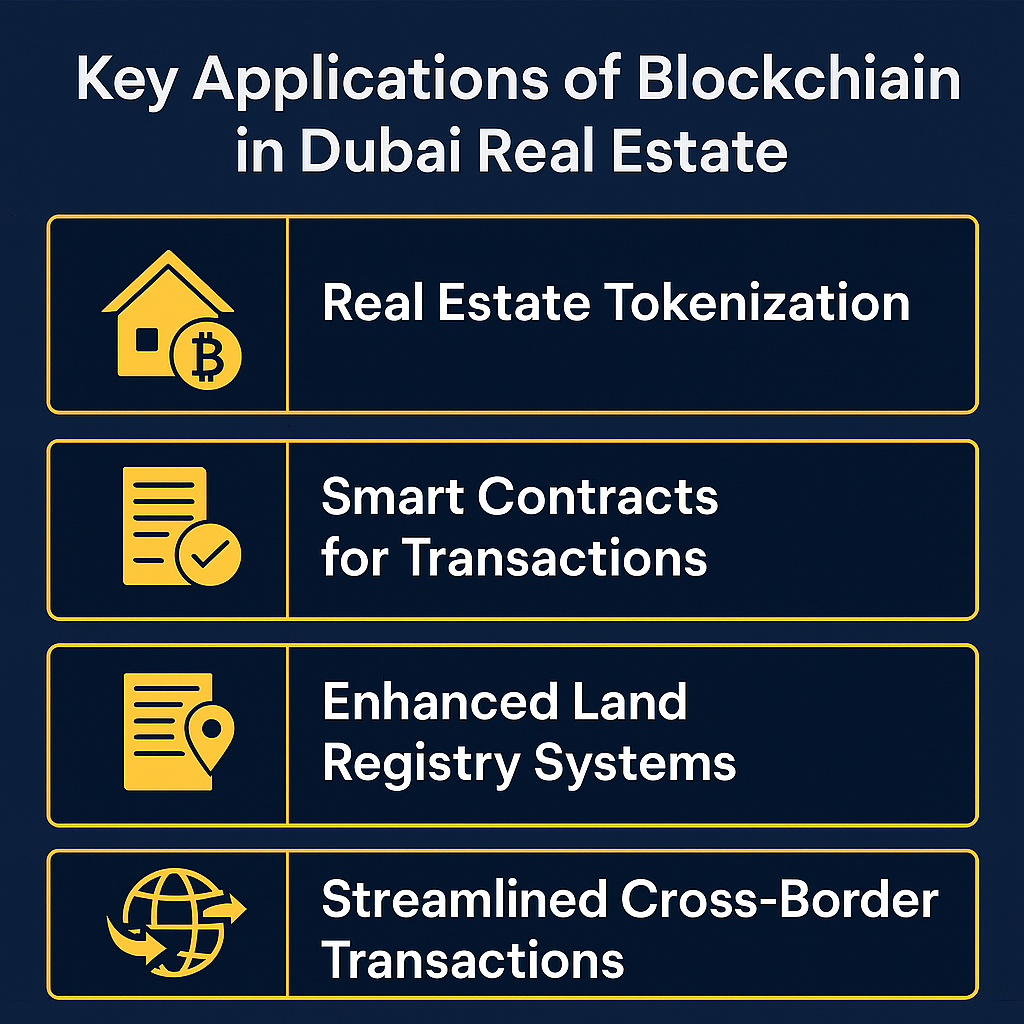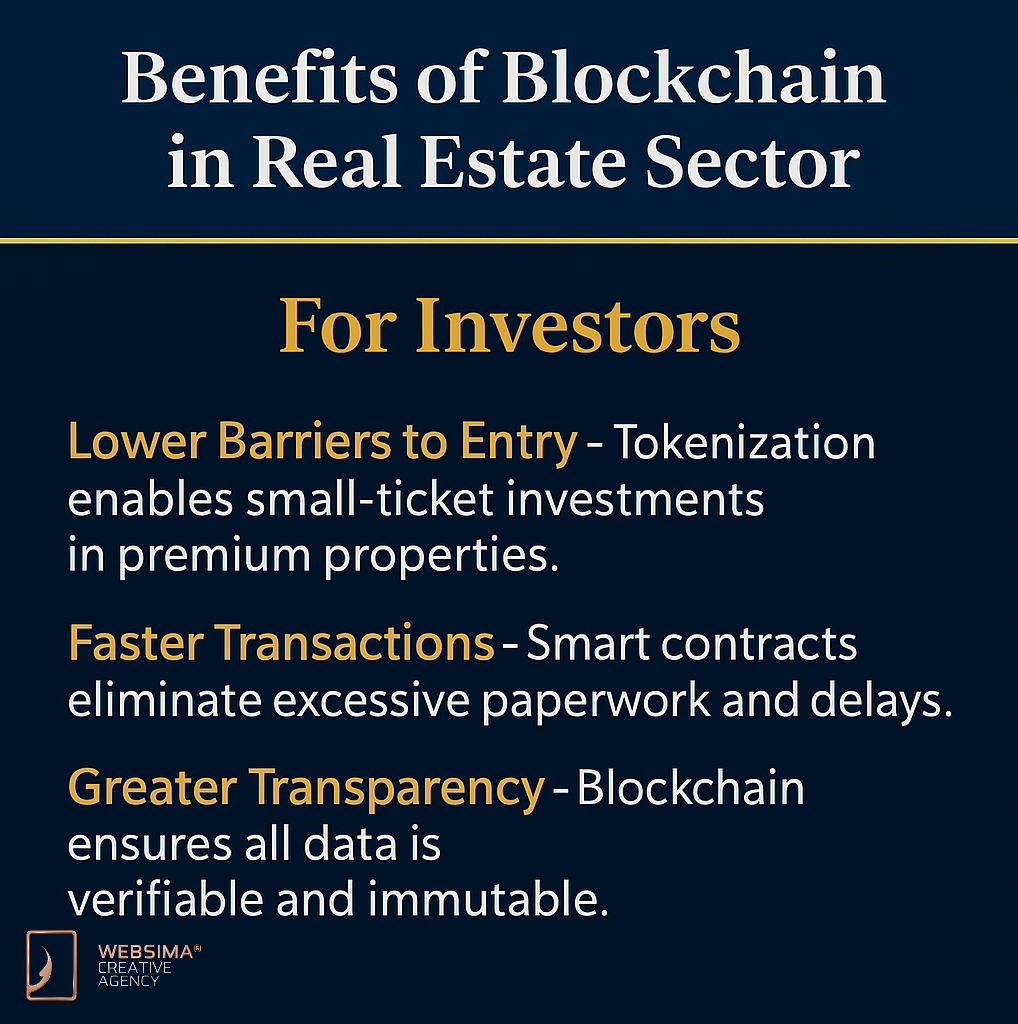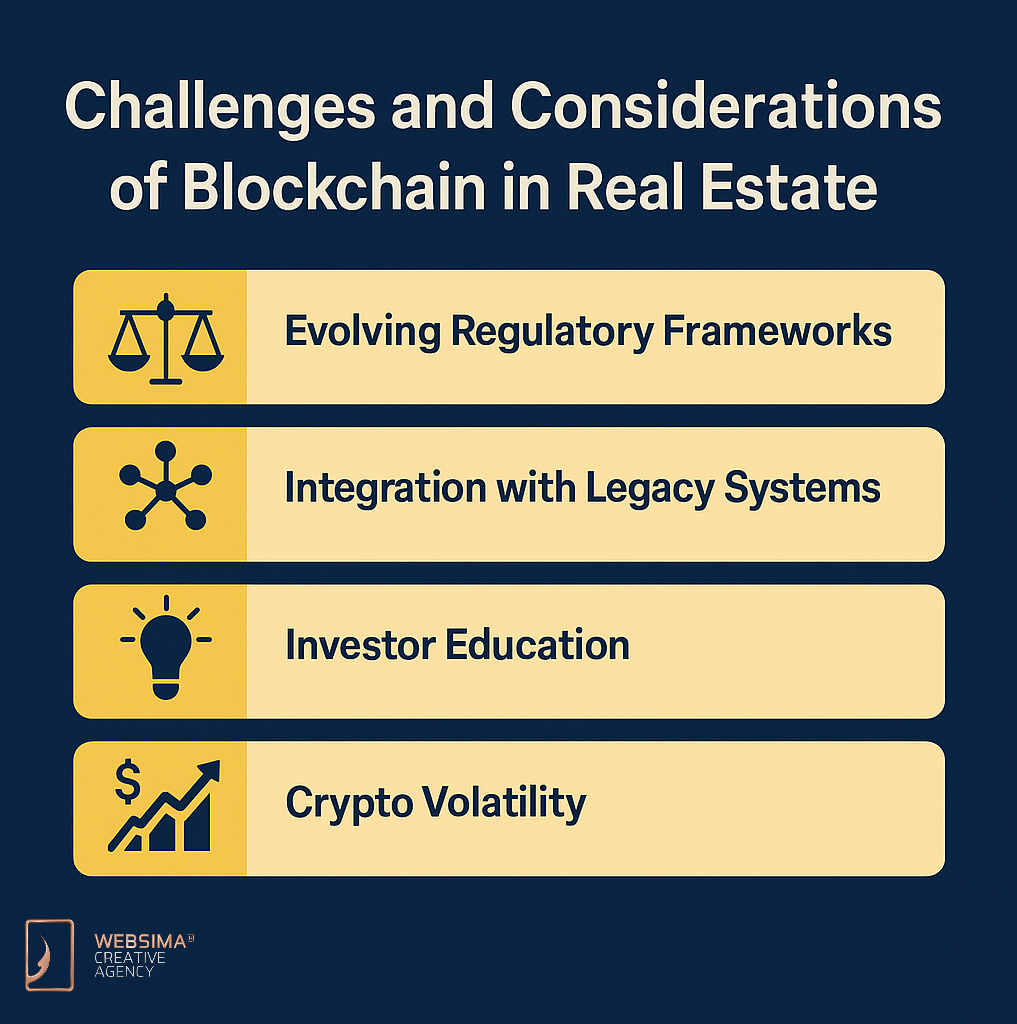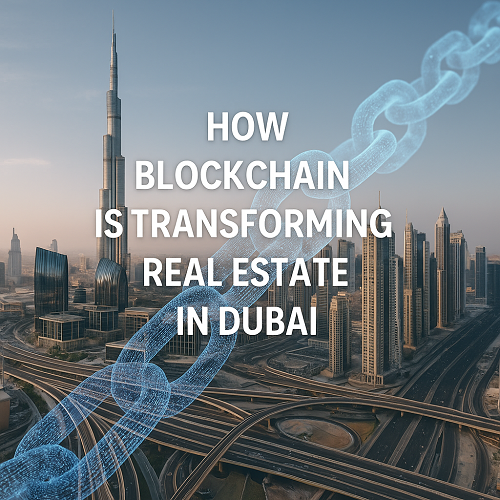Introduction
Dubai’s real estate sector has long been a beacon for global investors, renowned for its innovative architecture and investor-friendly policies. As the city continues to evolve, integrating cutting-edge technologies becomes paramount. One such technology, blockchain, is now at the forefront of revolutionizing the real estate landscape in Dubai. From enhancing transparency to enabling fractional ownership, blockchain in Dubai real estate is reshaping the way people buy, sell or trade properties.
BREAKING:
DUBAI LAUNCHES PILOT PROJECT TO TOKENIZE REAL ESTATE ASSETS ON BLOCKCHAIN.
THE UAE IS GIGA BULLISH ON CRYPTO pic.twitter.com/xCufsEzeoR
— Crypto Rover (@rovercrc) March 20, 2025
The Current Landscape of Dubai’s Real Estate Market
A Global Investment Hub
In 2023, Dubai’s real estate market recorded transactions worth over AED 528 billion, underscoring its position as a global investment hotspot. This data, published by the Dubai Land Department, reflects the city’s robust growth and its readiness to adopt technology-driven processes that improve efficiency and security in property transactions.
Embracing Blockchain Technology
Recognizing blockchain’s potential, the Dubai Land Department (DLD) has launched multiple projects to integrate the technology into real estate operations. The government designs these initiatives to enhance transparency, reduce fraud, and simplify the property transaction process for all stakeholders.
Key Applications of Blockchain in Dubai Real Estate

1. Real Estate Tokenization
Tokenization involves converting physical real estate into digital tokens recorded on a blockchain. These tokens can be traded or sold, offering fractional ownership opportunities for retail investors.
With the Real Estate Tokenization project under the Real Estate Evolution Space Initiative (REES), investors can buy a portion of a high-value property without needing to purchase the entire unit.
2. Smart Contracts for Transactions
Smart contracts are digital agreements coded on the blockchain that self-execute once specific conditions are met. In the real estate sector, smart contracts languages for developers in UAE, can be used to handle sale agreements, rental contracts, or escrow processes—automating what used to be manual and time-consuming. That is how blockchain is revolutionizing real estate deals.
Dubai’s broader blockchain strategy aims to digitize 100% of applicable government transactions, and smart contracts are a core component. These contracts minimize the potential for disputes, reduce the need for third-party intermediaries, and significantly cut transaction times.
3. Enhanced Land Registry Systems
Dubai Land Department has implemented blockchain-based property registries, where property records and land registries in Dubai are gradually being shifted to blockchain networks. The data entries are immutable and timestamped in such a network. This eliminates the risk of tampering and ensures the authenticity of ownership records.
With blockchain-enabled registries, prospective buyers and regulatory bodies can verify the entire history of a property through a transparent, accessible platform—reducing land disputes and fraud significantly.
4. Streamlined Cross-Border Transactions
Dubai’s real estate market heavily relies on international buyers. Blockchain allows for secure cross-border transactions, simplifying investor onboarding through digital identities and encrypted verification processes.
For example,
identity management frameworks and anti-money laundering (AML) checks are executable via blockchain-based platforms,
reducing delays in Know Your Customer (KYC) procedures and easing access for foreign investors.
Benefits for Stakeholders
Investors

- Lower Barriers to Entry – Tokenization enables small-ticket investments in premium properties.
- Faster Transactions – Smart contracts eliminate excessive paperwork and delays.
- Greater Transparency – Blockchain ensures all data is verifiable and immutable.
Developers
- Efficient Capital Raising – Developers can sell tokenized shares of projects to a broader audience.
- Automation – Lease agreements, deposits, and sale contracts can be executed with minimal human intervention.
- Global Outreach – With blockchain, Dubai real estate can be marketed globally with fewer regulatory complexities.
Regulators
- Enhanced Oversight – Real-time visibility into all property records and transaction history.
- Reduced Fraud – The immutability of blockchain prevents forgery and unauthorized changes.
- Seamless Interdepartmental Coordination – Automated workflows enable regulatory bodies to collaborate more effectively.
Challenges and Considerations

1. Evolving Regulatory Frameworks
While Dubai is considered one of the most forward-thinking cities in blockchain adoption,
comprehensive laws covering tokenized real estate and smart contracts are still evolving. The Dubai Virtual Assets Regulatory Authority (VARA) continues to issue frameworks, but further clarity is essential for large-scale implementation.
2. Integration with Legacy Systems
Transitioning from traditional databases and paper-based registries to blockchain requires considerable time, resources, and stakeholder education. Many real estate firms and banks must overhaul outdated systems before integration is possible.
3. Investor Education
Retail and institutional investors alike require better understanding of blockchain concepts such as wallets, keys, and smart contracts. Education initiatives are essential to drive adoption and reduce risk aversion.
4. Crypto Volatility
Although real estate tokenization doesn’t necessarily require cryptocurrencies, many platforms support crypto payments. Given the volatility in crypto markets, stablecoins and regulated payment systems must be carefully integrated to maintain price stability and protect users.
The Road Ahead
Dubai’s vision is aligned with transforming its real estate ecosystem using blockchain. According to the Emirates Blockchain Strategy 2021, the government aims to move 50% of its transactions to blockchain platforms. For real estate, this means digitized mortgages, tokenized REITs, smart contract-powered tenancy platforms, and blockchain-secured property management tools.
Final Thoughts
Blockchain technology has set the stage for a monumental transformation in the UAE property market. From smart contracts and tokenization to immutable land registries and global investment access, the integration of blockchain in Dubai real estate is changing the game.
Dubai’s regulatory foresight, coupled with a proactive real estate sector, ensures it remains a global pioneer in blockchain adoption. As infrastructure matures and stakeholders align, blockchain will be the new foundation of trust, transparency, and efficiency in property transactions across the emirate.
Ready to Explore Blockchain Real Estate Solutions in Dubai?
At Websima, we specialize in developing custom blockchain solutions tailored for the real estate industry in Dubai and across the UAE. Whether you’re a property developer, proptech startup, or global investor looking to digitize your real estate operations—our experts are ready to help you navigate the future.
Book a free consultation to explore how we can bring your blockchain vision to life.
Contact us here





